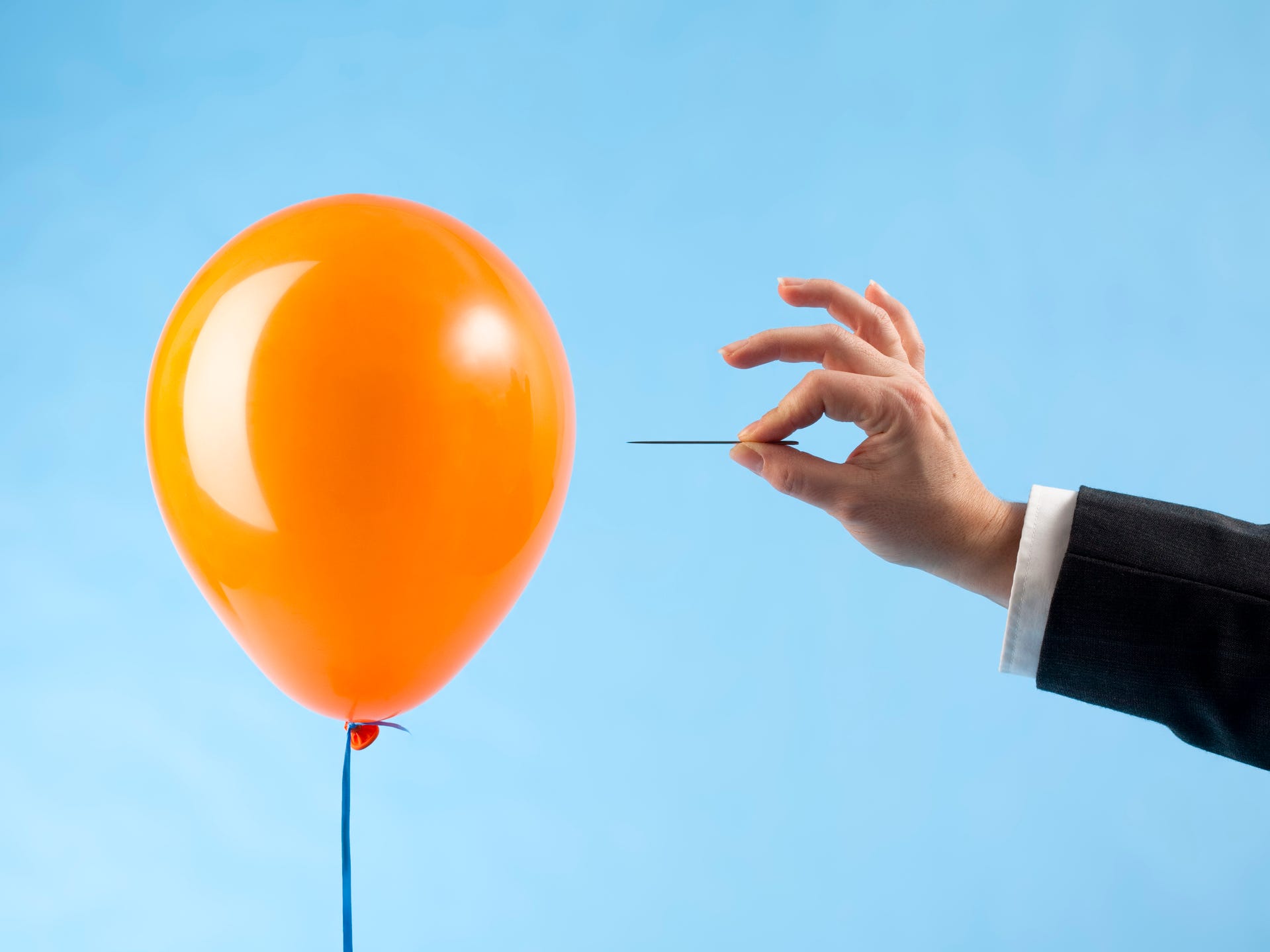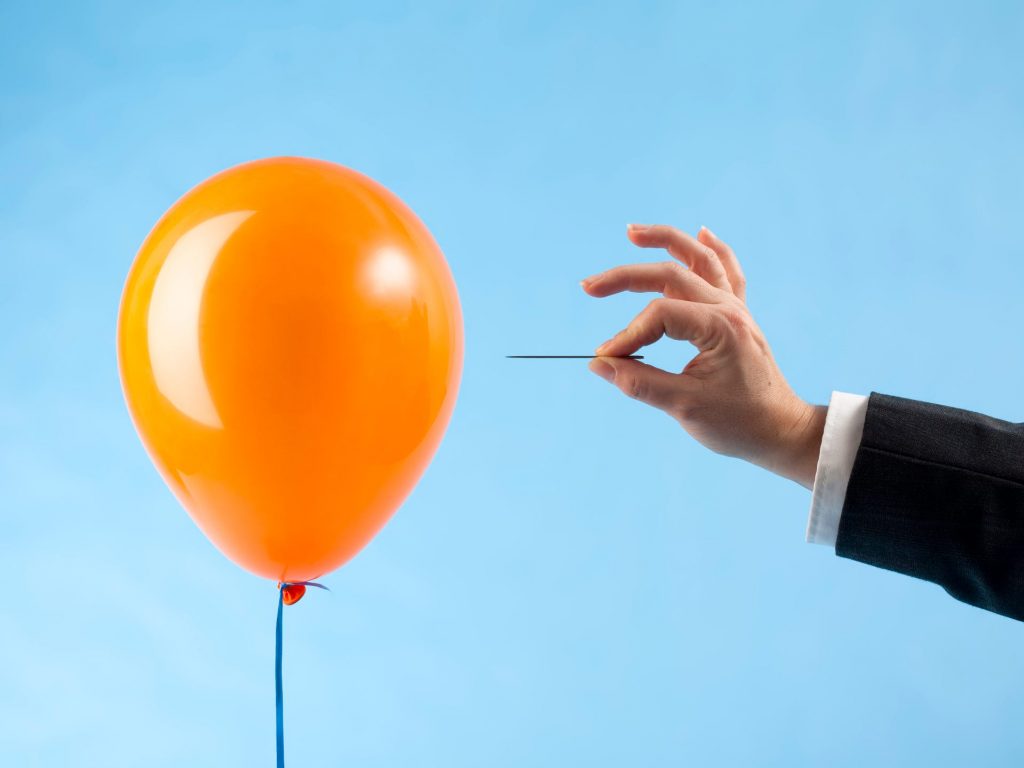
- Inflation once again increased in May, with the year-over-year jump the biggest since 2008.
- But the month-over-month pace slowed and used-car prices are starting to slow their surge.
- The stock market wasn't ruffled on the news, another clue inflation may have peaked.
- See more stories on Insider's business page.
Much like everything else in the economy, inflation has been on a rollercoaster ride.
In May, the consumer price index (CPI) climbed once again, beating forecasts from economists. The 5% CPI increase on a year-over-year basis was stark: the strongest one-year growth since August 2008.
So, yes, inflation is up, but a closer look at the monthly report from the Bureau of Labor Statistics suggest it could cool down soon.
First, it's important to remember context. CPI dipped drastically last year – the onset of a global pandemic that cost millions their jobs and incomes. So the 5% year-over-year reading is skewed by a once-in-a-lifetime pandemic and economic event. This is what economists call "base effects."
Beyond that skewing, there are a few signals that a slowdown could be on its way.
(1) Month-over-month growth slowed
Inflation increased month-over-month, by 0.6%, but at a slower rate than April's 0.8%.
The monthly read for April handily beat economists' expectations of a 0.2% increase and marked a 13-year high, while May was a slight beat of median estimate from economists of 0.4%.
That shows a climb, but not necessarily a jump - and could signal a slower increase ahead. As Insider's Ben Winck reported last month, economists largely weren't worried about April's startling jump. Many attributed it to temporary shortages and pent-up demand in the economy, anticipating more temporary inflation.
Following those insights, the increase in May isn't unexpected. Instead, it shows that growing pains continue - but could ease soon.
(2) The pace of used-car price increases is slowing
One of the unexpected primary drivers of increased inflation: Used cars and trucks. They're an apt symbol for the current spate of shortages across the economy, with different shortages falling in place like dominoes to hike up prices.
A semiconductor shortage hit new car production, since those chips power everything from engines to Bluetooth capabilities. At the same time, as production of new cars slowed, demand was up. And so consumers turned to used cars, creating an unprecedented boom.
In both April and May, used cars fueled increased inflation. Prices for used cars jumped 10% in April, which UBS estimated was the largest monthly price increase in 68 years - the history of the used-car series.
But while used car prices again drove inflation in May, they didn't grow at the same breakneck rate. UBS researchers had forecast that prices would shoot up by 10.8%, but they came in at at the still shocking but more modest 7.3%. Yes, that's still very high for used car prices - but it is evidence of some cooling.
(3) Markets aren't too worried about it
The market didn't seem too worried about this inflation read. Stocks actually rose on Thursday morning following the inflation figures. They were also reacting to an in-tandem release of jobless claims, which hit their latest pandemic-era low.
The bond market also didn't appear to be too worried. While the 10-year treasury yield briefly jumped after the release, it quickly returned back to roughly where it had been trading Wednesday afternoon.
Yes, prices are still rising, and that's likely to be felt by consumers and suppliers alike. Apparel and food both saw notable prices increases, as well as shelter. And inflation probably won't just dissipate immediately, especially with continued shortages and labor supply issues.
Gregory Daco of Oxford Economics wrote on Twitter that it'll be a "muggy" summer of inflation, with residual "sticky" inflation for goods. But he also said that inflation likely peaked in May, and will continue to cool throughout the year.
Regardless, we're still in for a weird economy summer - and we don't know what the impact of September's fiscal cliff, when millions lose increased unemployment benefits, will look like. Even so, signs of slowing inflation are there under the surface.
Take it from White House Chief of Staff Ronald Klain, who tweeted about the latest numbers on Thursday morning: "Yes, it is true the prices for AIRLINE TICKETS and USED CARS were up a great deal in May of 2021 over where they were in May of 2020 -- when everyone was coping with the worst of the pandemic!"
On the other hand, perhaps the White House is more worried than it says about yet another big inflation number.
